
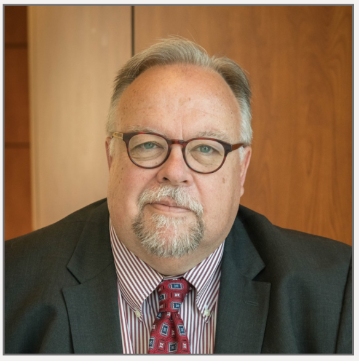
As evidenced by the important work highlighted in this report, much of our effort this past year was focused on preparing folks to make better, more ethical decisions not only today, but for years to come.
This is most impactful when we are working with the many SCU students – nearly 800 since our founding – through our various fellowships and internships to help them develop their ethical decision-making muscles. We profile their efforts later in this report.
I feel it’s important to occasionally take pause and confirm we’re all pulling in the right direction. We’ve done just that this past year, evaluating our values, resetting our vision, and fine tuning our strategic priorities all in a nearly year-long exercise. Fortunately we didn’t have too far to go.
New to the Ethics Center this year is Dorothee Caminiti, who leads the Bioethics program and its popular Health Care Ethics Internship. Her focus is on the ethical problems associated with personalized medicine and the processing of health-related data. And Sarah Cabral is helping us sort through the many ethical dilemmas within corporations as well as leading our business ethics internship.
As we continue to recover from the pandemic and transition closer to our new normal, I invite you to look back at the work we’ve done over the past year – much of which was supported by the passion and generosity of our donors – all in an effort to build a more ethical future.
To those of you who are new to the Ethics Center and our work, we look forward to building a long-lasting partnership, and to our old friends, thank you for your ongoing support.
Don Heider
Executive Director
Ethics in Action
Highlights of the Ethics Center’s work from the 2021-22 academic year:
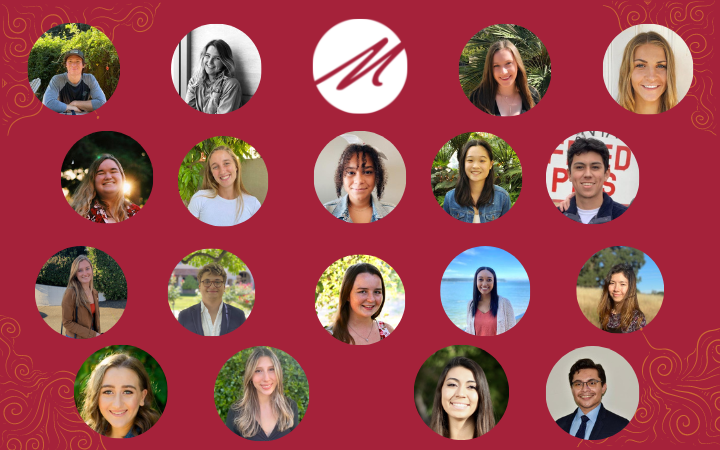
Investing in the Future
The Markkula Center committed more than $60,000 to student programs last year and significantly more in staff time and talent. The resources invested in these programs provide the greatest return, as the ethical muscles our students develop through their work with the Center will positively impact society for decades to come. This has never been more true than with the amazing cohort of students participating in our programs in the 2021-22 academic year.
Our programs include:
- Environmental Ethics Fellowship
- Government Ethics Fellowship
- Hackworth Fellowship
- Business Ethics Internship
- Health Care Ethics Internship & Honzel Fellowship
Student projects from our 2021-22 Environmental, Hackworth, and Business Ethics programs are featured in our 2022 Student Project Showcase, and insights and analysis from our Health Care Ethics Internship can be found in our Ethics in Healthcare Blog.

Building Ethics for the ‘Wild West’
With Meta’s recent, massive investment into its new virtual app, New Horizons, the metaverse is expected to see explosive growth in the next few years and into the future. Meta is not alone; other major technology companies are making major investments in development for the metaverse. In fact, it’s estimated that by 2026, one in four people will spend at least an hour in the metaverse every day.
However, as Don Heider, Markkula Center executive director, recently said in an interview on NewsNation, “It’s a ‘wild west’ right now, and so the question is, how is it going to be regulated? How responsible are companies going to be?”
As in all of the programs featured in this report, the Ethics Center is working to enable ethical decision making that positively impacts the future of our society. In support of that effort, we’ve taken the first step in creating an ethical culture in the metaverse by developing a code of ethics for this new world. Learn more about the need for ethics in the metaverse and read our code of ethics.
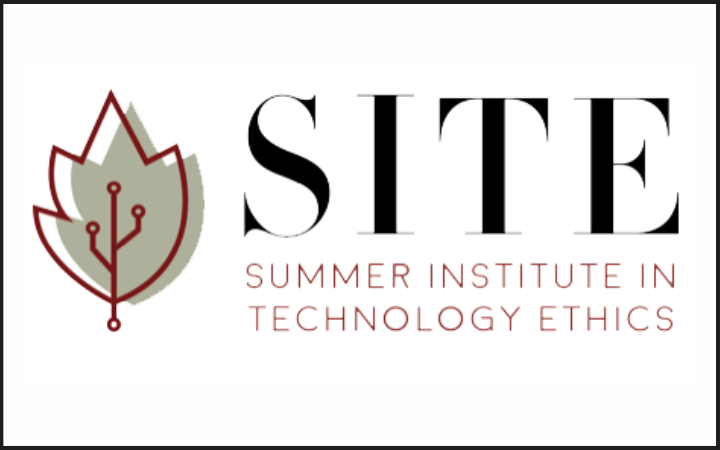
Developing Ethics in Tomorrow’s Tech & AI Leaders
In summer 2022, the Ethics Center held its week-long Summer Institute in Technology Ethics (SITE) conference, which concluded with the Character of AI seminar. The various sessions focused on the importance of ethics and responsible engineering in the expanding, uncharted tech industry.
SITE offered 25 graduate students and postdoctoral fellows an in-person curriculum focused on fundamental and emerging research in technology ethics, with a special emphasis on the ethics of data and artificial intelligence. Various panels and workshops enabled participants to interact with internationally recognized experts and professionals now working in AI ethics and responsible computing roles.
The Ethics Center strives, through programs like SITE, to foster an environment of mentorship and lifelong connections, working to guide the professionals of the future who will in turn, lead in the development of ethical technology.
Watch replays of many of the sessions and find out more about the program.

New Guidelines for Ethical News Distribution
The Center’s Journalism and Media Ethics Program developed a set of principles, funded by Newmark Philanthropies, that news platforms (social media and internet search companies who distribute news) can adopt to exercise ethical online news distribution practices.
The document is a set of recommendations from a cross-functional convening of leaders from technology, journalism, and academia, whose common interest is that both the creation of news and its distribution must better serve democracy. The series of four roundtable meetings took place between summer ’21 and ’22.
“News is a public good, both for citizens and communities worldwide,” said Subramaniam Vincent, director of journalism and media ethics at the Markkula Center. “Since social media, search, and news aggregator platforms distribute the news—sometimes personalized or influenced by the user’s network—news distribution both carries and shapes public discourse and, consequently, has a strong impact on democracy.”
Read about the guidelines and more information about the News Distribution Ethics recommendations.
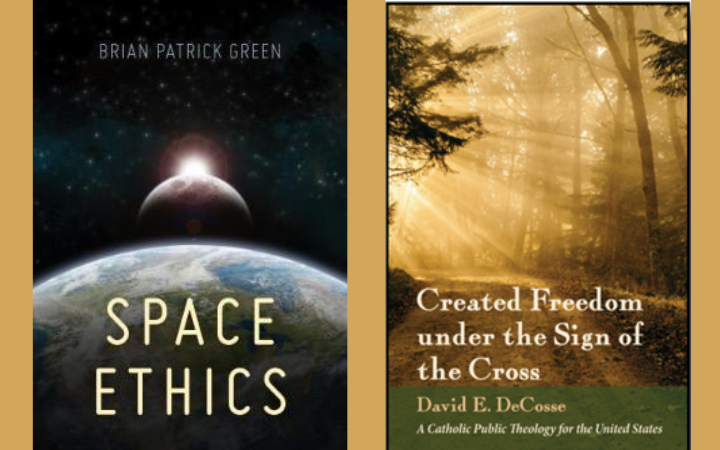
This past year, two Center staff authored and published books, further cementing their expertise along with the Center’s role as a leader in applied ethics.
In his new book, Space Ethics, Brian Green, director of technology ethics, addressed the many ethical viewpoints on space exploration and travel, providing insight into both the future and the present of the human race to space. Green reminds us that as we look forward to its wonders, it is important to remember the human impact of our space obsession and the effects it may have on our own planet.
David DeCosse, director of religious and Catholic ethics, authored Created Freedom Under the Sign of the Cross: A Catholic Public Theology of Freedom for the United States. In his latest work, DeCosse takes a look at the concept of freedom from a Catholic perspective. Americans have invoked freedom to refuse masks and vaccines in a viral pandemic and to lie and say that no one has the truth anyhow. He suggests we turn to Catholic theology to recover and renew the country’s core value. DeCosse also recently completed a series of books on the theology of conscience and Catholicism through the generosity of Mike and Phyllis Shea.
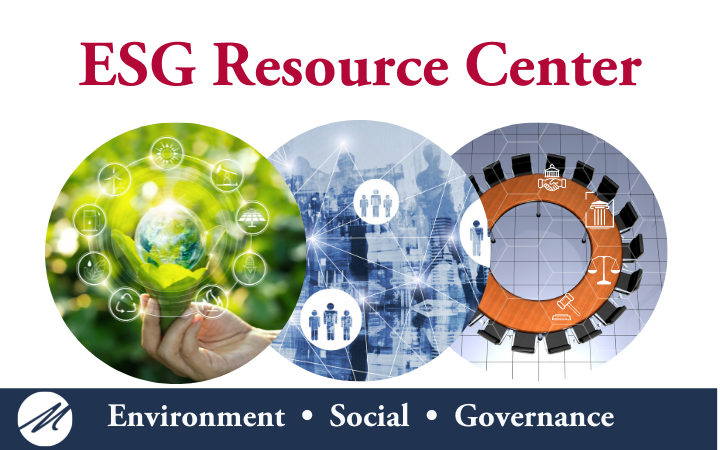
Companies are under extreme pressure to begin accounting for how they are performing, not only financially, but in other key non-financial matters, as well. In particular, environmental, social, and governance (ESG) factors have become a critical area of focus, and the Markkula Center has developed a new set of resources to help them operationalize ESG reporting.
The ESG Resource Center provides companies free access to an extensive library of insights and tools. In addition, the Ethics Center consults with large and small organizations to help with their ESG-related needs.
“No one is more qualified to offer this expertise than an ethics center at a Jesuit university in the Silicon Valley whose vision for more than 170 years has been to educate citizens and leaders to build a more humane, just, and sustainable world,” said Don Heider, executive director, Markkula Center for Applied Ethics at Santa Clara University.
Setting a Path for the Future
The Markkula Center for Applied Ethics will empower people and organizations to make better decisions for a more caring world.
Early in 2022, we set out to create a new strategic roadmap to a distinctive Markkula Center for Applied Ethics. This roadmap is intended to provide a direction that will result in further cementing our role as the leader in training, facilitating, and teaching others to make better ethical decisions. It will allow us to prioritize our own decisions and path forward and enable us to continue to measure its effectiveness over time. It ensures that our position as a Center of Distinction holds true both on campus and around the world.
The collaborative process included in-depth feedback from stakeholders including Center staff, SCU faculty, Advisory Board members, and Advisory Council members.
Key components of our new roadmap include an updated vision statement and a refinement of our core values.

The Ethics Center broadened its reach in 2021-22 and reached its constituents in new ways.
A summary of expenses and revenues from 2021-22.
The important work done by the Ethics Center is, in part, made possible by the generous financial support of its donors.
We are guided by an Advisory Board comprised of representatives of major Silicon Valley companies, law firms, and nonprofit organizations.
Program Areas
Ethics is crucial to every professional field, and the Markkula Center for Applied Ethics develops programs, resources, and insights in many disciplines.
Bioethics seeks to resolve moral dilemmas that arise in health care and biotechnology.
Business Ethics is the study of standards of behavior that promote human welfare and the common good within businesses.
Campus Ethics welcomes Santa Clara University students, faculty, and staff into a conversation about applying ethics to the critical issues of our time.
Government Ethics encompasses the duties and obligations one assumes when he or she enters public service, as well as the personal pursuit of running for office.
Immigration Ethics explores the moral issues that arise from the movement of individuals across borders.
Internet Ethics explores topics including online privacy, cybersecurity, social media, data ethics, the digital divide, internet access, and more. And in collaboration with the Technology Ethics program, it also addresses AI ethics and corporate tech ethics development.
Journalism & Media Ethics offers journalists a framework for ethical journalism and uses ethical principles to frame the design and delivery of news, social media, and search products.
Leadership Ethics looks at the issues faced by those in formal leadership roles, as well as personal leadership, which is central to the way they are able to have an impact as leaders.
Religious and Catholic Ethics program seeks to illuminate and comment on the influence of religious and Catholic thought on the ethical dimension of the key issues of our time.
Social Sector Ethics works with both donors and nonprofit organizations themselves in the areas of finance and operations, leadership, fundraising, and engagement with the public.
Technology Ethics addresses issues arising from transhumanism and human enhancement ethics, catastrophic risk and ethics, religion and technology ethics, and space ethics.
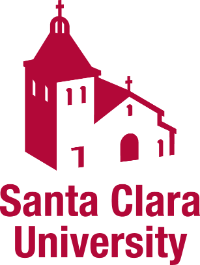
When Fr. Locatelli formed the Centers of Distinction, he imagined three centers deeply resonant with Santa Clara University’s Jesuit heritage and its practice of forming leaders for a better future for all.
Markkula Center for Applied Ethics brings the traditions of ethical thinking to bear on real-world problems to make choices that respect and care for others.
Ignatian Center for Jesuit Education activates the Jesuit, Catholic character of Santa Clara University by encouraging students, faculty, staff, and community to embrace the Ignatian worldview in reflection, discernment, and action.
Miller Center for Social Entrepreneurship combines the entrepreneurial spirit of Silicon Valley with the Jesuit heritage of serving the poor and protecting the planet to accelerate social enterprises around the world

